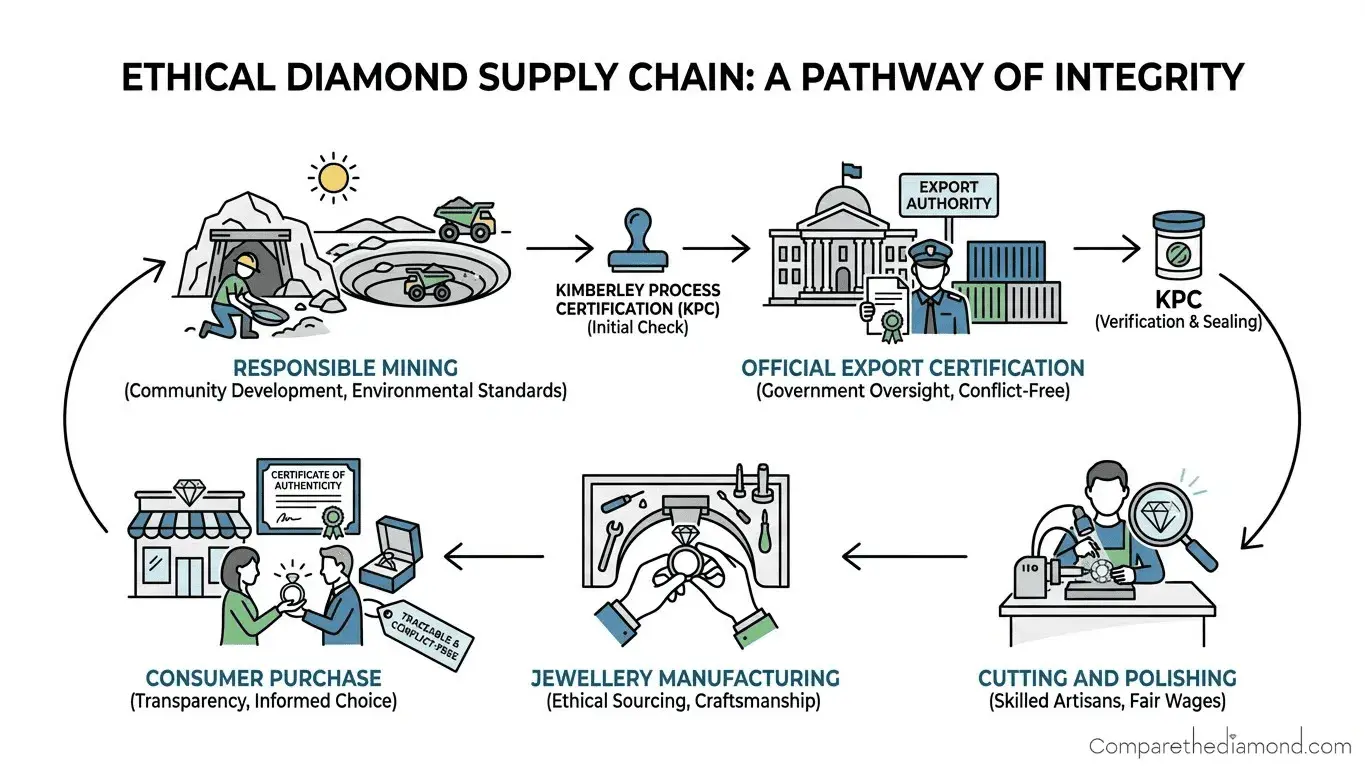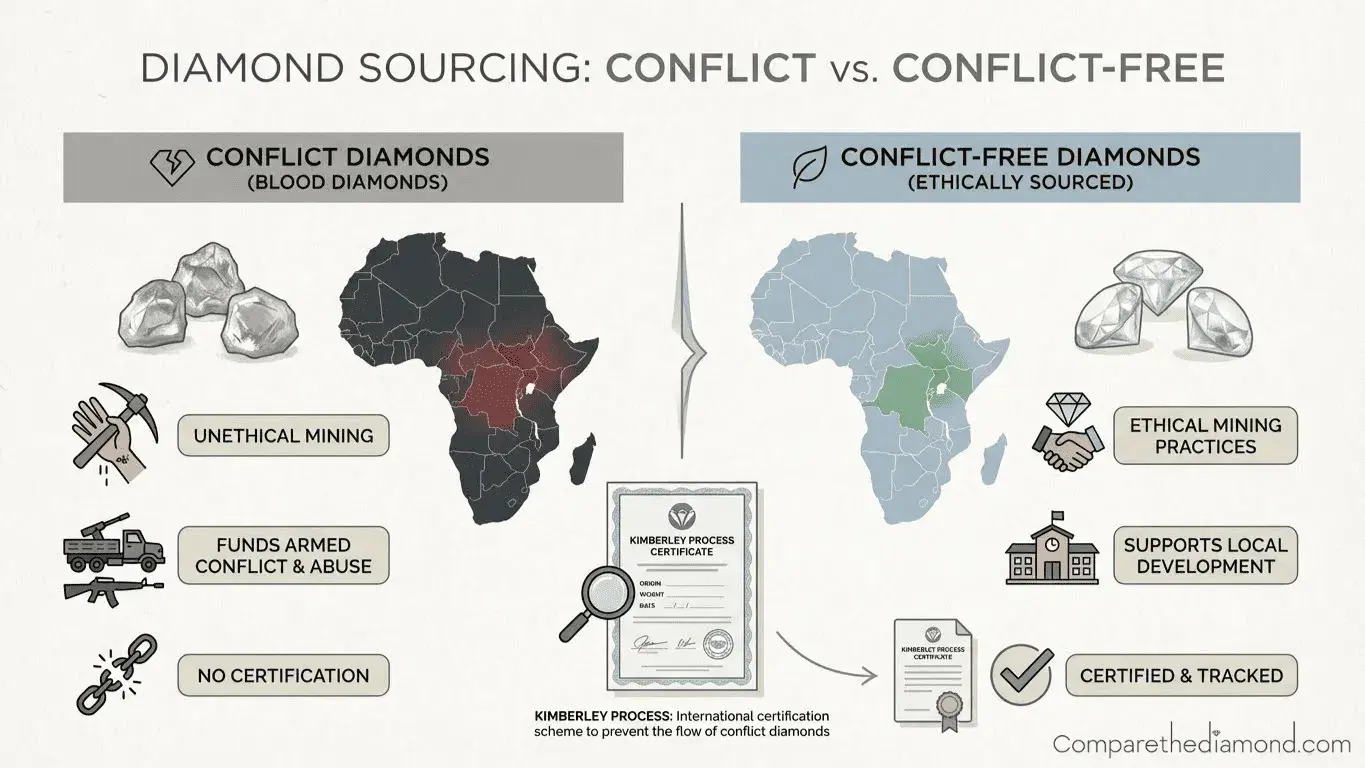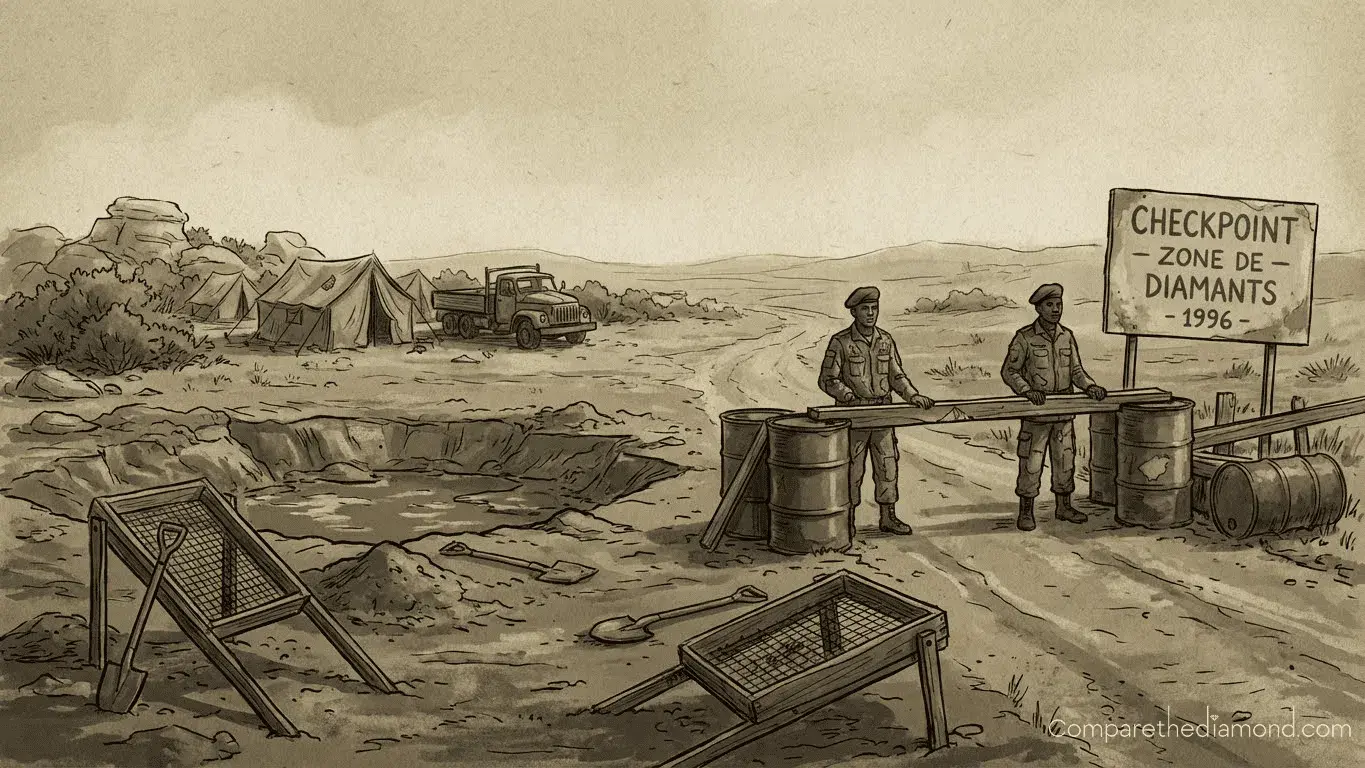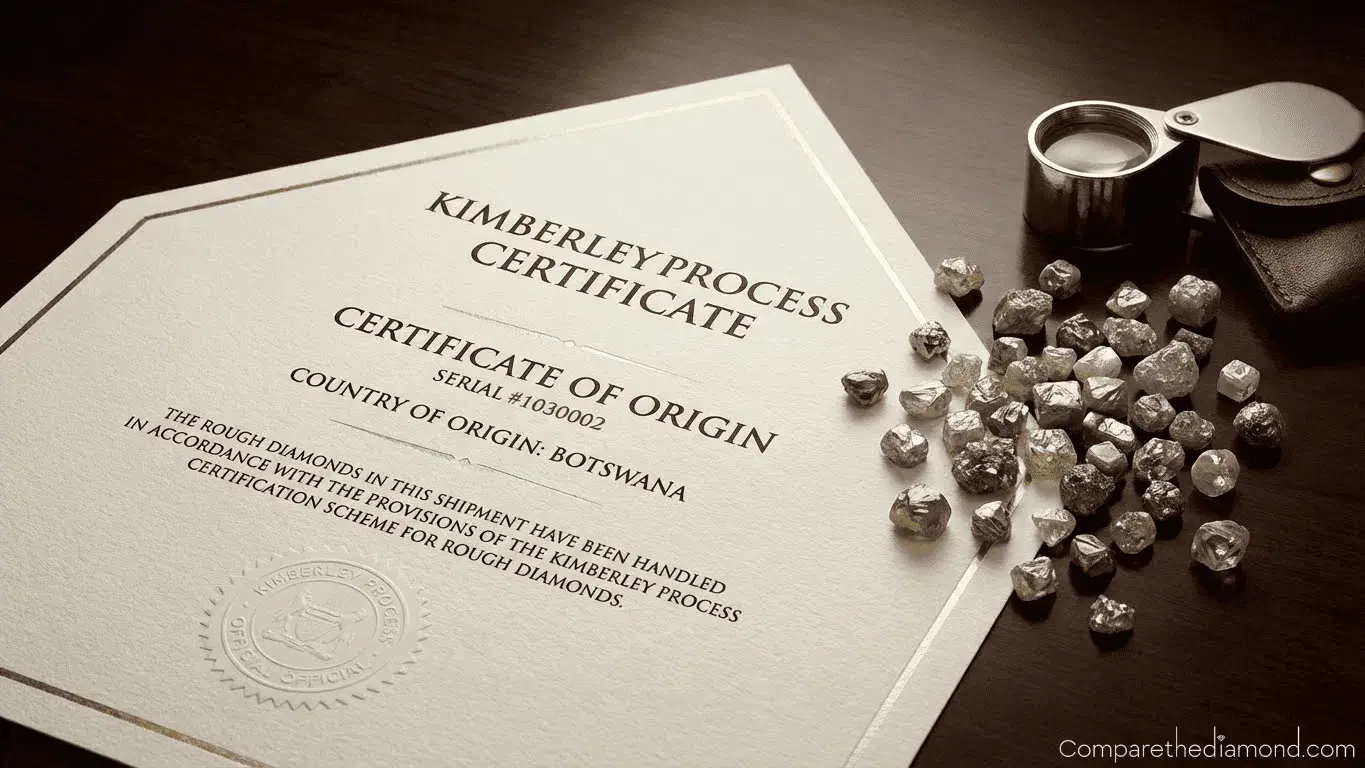What Are Conflict Diamonds?
The term conflict diamonds (sometimes called blood diamonds) refers to diamonds that are mined and sold to finance armed conflict, rebel movements, and human rights abuses in their countries of origin. These illicit stones became infamous during the brutal civil wars in West Africa during the 1990s, where diamond revenues funded devastating violence.
While the wars have ended, the lessons remain important: ensuring that the diamonds we buy are mined responsibly and ethically is vital.

Our Conflict-Free Guarantee

At ComparetheDiamond.com (formerly DiamondGeezer.com), we are committed to ethical sourcing.
“The diamonds on this site and those that we sell have been purchased from legitimate sources not involved in funding conflict and in compliance with United Nations resolutions. We hereby guarantee that these diamonds are conflict-free, based on written guarantees provided by our suppliers.”
This promise is at the heart of everything we do.
The Bigger Picture
The film Blood Diamond brought global attention to the issue, highlighting the role of diamonds in fuelling wars, particularly in Sierra Leone. At the height of the conflict, an estimated 4% of African diamonds were linked to atrocities.
However, boycotting diamonds from West Africa is not the solution. Legitimately mined diamonds from the region support thousands of workers and their families. For example:

-
West Africa’s mining industry employs thousands of people.
-
Many diamonds are cut and polished in India, where over 700,000 workers rely on this trade, each supporting an average of ten dependents.
-
A boycott would directly impact millions of livelihoods in some of the world’s poorest regions.
The real issue is not where diamonds come from, but how they are mined and whether they pass through official, ethical channels.
The Kimberley Process Explained

In response to the global outcry, governments, the diamond industry, and NGOs came together in May 2000 in Kimberley, South Africa, to establish a framework to eliminate conflict diamonds from the supply chain.
This resulted in the Kimberley Process Certification Scheme (KPCS), formally launched in 2003.
Key Features of the Kimberley Process:
-
Certification Requirement: All shipments of rough diamonds must be accompanied by a Kimberley Process certificate, guaranteeing they are conflict-free.
-
Participation Rules: Only countries that meet strict requirements can participate, and they can only trade with other participants.
-
Global Cooperation: The scheme currently has 45 participants, representing 99.8% of the world’s rough diamond production.
-
Monitoring & Oversight: Working groups and committees ensure compliance, including regular plenary meetings where governments, industry, and civil society review progress.
Why It Matters
Thanks to the Kimberley Process, the trade in conflict diamonds has been reduced to a fraction of what it once was. While challenges remain — such as smuggling and enforcement in some regions — the initiative represents a global commitment to responsible diamond sourcing.
Importantly, the Kimberley Process also helps ensure that revenues from diamonds support economic growth and improved working conditions in mining communities. Just as our coal and steel industries improved over time, the diamond sector is evolving towards greater transparency and accountability.
Final Thoughts
The Kimberley Process is more than just a certification scheme — it is a joint effort by governments, industry, and civil society to ensure that the beauty of diamonds is never tainted by conflict. At ComparetheDiamond.com, we are proud to uphold these standards and guarantee that every diamond we sell is conflict-free. When you choose a diamond from us, you can do so with confidence, knowing that it brings only joy, not harm
